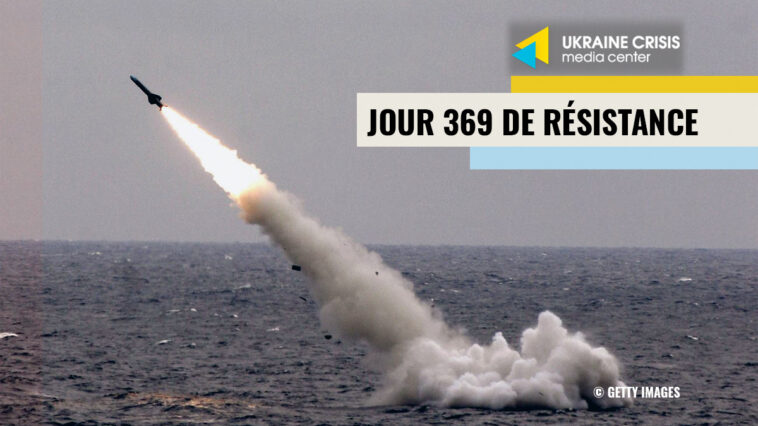Russia changes tactics on missile strikes, Ukraine’s military intelligence says
The Main Intelligence Directorate of the Ministry of Defense of Ukraine has been observing a change in the way Russia uses missiles in the war against Ukraine, intelligence official Andriy Chernyak told RBC Ukraine. “First, they really learn from their mistakes. Second, they run out not only of high-precision missiles, but of missile weapons in general,” Chernyak said.
Ukraine’s military intelligence estimated that Russia has less than 100 precision cruise missiles of the Kalibr, Kh-101, and Kh-555 types that it uses most often to strike Ukraine.
Chernyak added that Russia still has thousands of missiles in stock, but they are running out of them much faster than they are able to produce. He said Russia was not able to produce more than 30-40 missiles per month.
The old missiles they have in service either fail due to a malfunction or have a limited strike range, the representative of Ukraine’s military intelligence said.
Ninety-five per cent of the Russian land forces are taking part in the war against Ukraine one way or the other, Chernyak said. As they fail to achieve strategic objectives, Russia tries to bolster its offensive potential by using its air force.
Strikes damage Russian warplane on airfield in Belarus
On Sunday, February 26, explosions rocked the Belarusian airbase Machulishchy that the Russian forces use. A Russian A-50U early warning aircraft was struck by blasts, Belarus opposition organization BYPOL said.
Two strikes damaged front and central parts of the aircraft as well as avionics and a radar antenna. The plane won’t be able to fly anywhere.
Aliaksandr Azarau, leader of BYPOL organization that consists of former Belarusian law enforcement officers now opposed to the government, said that the aircraft was hit by drones and Belarusian partisans were behind the strike.
Russia’s infinite manpower is myth. Putin to face choices in possible call-up campaign, Institute for the Study of War says
Following partial mobilization and a few hidden campaigns to recruit reservists or volunteers, Russian President Vladimir Putin is facing a dilemma as the pool of reservists appropriate for front-line fighting is finite, the Institute for the Study of War said in a report of February 26 that focuses on Russia’s mobilization efforts.
The specter of limitless Russian manpower is a myth. Putin has already been forced to make difficult and suboptimal choices to offset the terrible losses his war has inflicted on the Russian military, and he will face similarly difficult choices in 2023 if he persists in his determination to use military force to impose his will on Ukraine and the West. Russia can mobilize more manpower, and Putin will likely do so rather than give up, the Institute for the Study of War (ISW) says. But the costs to Putin and Russia of the measures he will likely need to take at this point will begin to mount rapidly.
Putin’s clear efforts to prepare the Russian people for a protracted and painful war suggest that he has realized that only the Russian Ministry of Defense [not the mercenaries or quasi-official groups] can actually sustain the large mechanized forces he needs to have any hope of achieving his ambitions in Ukraine. Putin has apparently still hesitated to order the additional reserve call-up that Russian officials were reportedly preparing at the start of 2023.
He has not turned back to voluntary recruitment and is unlikely to do so. The call-up efforts were with the regional authorities that began to recruit to compensate for the losses incurred since May 2022. But Putin seems to remain nervous about how much sacrifice he can impose on his people, ISW said.
Ukraine in Flames, latest episodes
Release of Ukrainian POWs and civilian hostages. Ukraine in Flames #352
The story of abduction, abuse, and disappearance is unfortunately a common story to a lot of Ukrainians. russian federation is currently holding thousands of Ukrainian POWs and civilian hostages in inhumane conditions, sometimes without even admitting that they hold those people, without notifying their family members or lawyers and without filing any charges. Watch Ukraine in flames #352 to find out about the process of POW exchange between Ukraine and russia, and what Ukraine is doing to return home our citizens that are held hostage.
Guests:
- Tetiana Pechonchyk, Head of the Board of the Human Rights Centre ZMINA
- Oleksandr Pavlichenko, Executive Director of the Ukrainian Helsinki Human Rights Union

